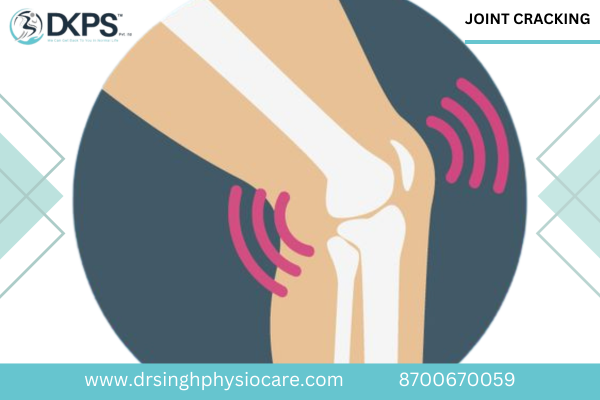- Home
- About Us
- DKPS Dealing
- BLOG
- Delhi NCR
- Delhi
- Physiotherapy at Home Near Me | Physiotherapist in South Delhi
- Best Chiropractor in Delhi
- Physiotherapist in Delhi
- Cupping Therapy in Delhi
- Home Nursing Services in Delhi
- Needle Therapy for Back Pain
- Sports Injury Physiotherapy
- Best Physiotherapist Visit at Home in Rohini Sector 24
- Physiotherapy at Home In Rohini Sector 9 |
- Physiotherapist in Pitampura | Physiotherapy at Home in Pitampura
- Physiotherapy at home in Rohini sector 29
- Physiotherapist in Paschim Vihar
- Physio home visit | Home Visit Physiotherapy |
- Physiotherapist in Saket | Best Physiotherapist in Saket |
- Physiotherapist In Janakpuri | Best Physiotherapist in Janakpuri |
- Best Physiotherapist in Punjabi Bagh | Punjabi Bagh Physiotherapist |
- Best Physiotherapist Service at Home in Dwarka, Delhi
- Best Physiotherapist in Chandigarh at Home Visit
- Faridabad
- Gurugram
- Noida
- Best Physiotherapy Gorakhpur
- Best Physiotherapist in Lucknow | Physiotherapist in Lucknow near me |
- Delhi
- Mumbai
- Delhi NCR
- Department
- Doctors
- Gallery
- Packages
- Contact Us
ORTHOPEDIC
- Home
- ORTHOPEDIC

JOINT CRACKING :
Introduction of Joint Pain
Joint cracking is the term for joint manipulation that produces a sound and corresponding “popping” sensation. “Crepitus” is another name for it. The synovial fluid in the joint cavity contains trapped gas bubbles that rupture and cause joint cracking. Nitrogen, carbon dioxide, and oxygen make up synovial fluid, which lubricates joints. The “popping” or “cracking” sound is the result of gas being expelled from the joint when it moves.
Joint cracking can occur in various joints in the body, including the
knuckles
knees
shoulders
and spine
There are two primary processes that cause joint cracking:
1. Cavitation: The most typical cause of joint cracking is the synovial fluid’s gas or air bubbles cavitating. Synovial fluid, which lubricates the spaces between joints, is made up of dissolved gases, mostly nitrogen, oxygen, and carbon dioxide. Small, transient cavities can arise when a joint is moved in a way that causes an abrupt decrease in pressure, such as when you crack your knuckles. These gas bubbles can emerge quickly from solution. These bubbles are assumed to be collapsing or exploding because of the popping or cracking sound.
2. Ligament or Tendon Movement: A tendon or ligament snapping over a bony prominence may occasionally result in joint cracking. Larger joints like the knees and shoulders are more likely to experience this, and it occasionally has a connection to illnesses.
Generally benign, joint cracking may not always indicate a serious medical issue. Cracking joints might be relaxing or pleasurable for some people, but it can irritate others. While the occasional cracking of joints is normal, frequent or severe cracking of joints may indicate an underlying problem, such as osteoarthritis, joint instability, or injury. It’s best to speak with a healthcare provider for an accurate assessment and diagnosis if you have ongoing joint discomfort, edoema, or restricted joint motion.
cracking joints all over body
If joints across your body are cracking, you should think about how often they happen, how severe they are, and whether there are any related symptoms. It might not always be a sign of a major issue, but it could be a symptom of a number of things or underlying issues.
The following are some typical causes of frequent joint cracking:
1. Release of Gas Bubbles (Cavitation): As was already established, the most frequent reason for joints to crack is the extrusion of gas bubbles from synovial fluid. You may have frequent joint cracking just by habitually rotating your joints in a way that initiates this release. Usually harmless, it shouldn’t raise any red flags.
2. Joint Hypermobility: People with hypermobile joints are able to move their joints farther beyond their typical range of motion. As a result of the joints’ greater freedom of motion, joint cracking may become more common. Joint hypermobility alone does not necessarily indicate a medical issue, but it may be linked to diseases such as Ehlers-Danlos syndrome that need to be treated.
3. Tendons and Ligaments Snapping: Tendons or ligaments snapping over bony structures can also be the cause of frequent joint cracking. Larger joints, such the knee or shoulder, are more likely to experience this. Although largely innocuous, it may occasionally be linked to medical disorders or excessive use.
4. Arthritis: Joint injury or inflammation caused by osteoarthritis and rheumatoid arthritis can result in joint cracking. Joint cracking may indicate arthritis, therefore you should see a doctor for a precise diagnosis and course of treatment if it is accompanied by pain, stiffness, or swelling.
5. Age: As a person matures, joint cracking may occur more frequently. Older people may experience more frequent joint cracking due to changes in the synovial fluid and wear and tear on their joints.
6. Habitual Cracking: A few individuals get into the habit of regularly cracking their joints. This behaviour may eventually result in more frequent joint cracking. Although this normally doesn’t hurt, some people could find it irritating.
7. Overuse or Muscle Imbalances: Overuse of some joints or muscle imbalances may be the cause of frequent joint breaking. By using exercises and procedures, a physical therapist can assist in identifying and resolving these problems.
8. Anxiety and Stress: Anxiety and stress can cause muscle strain, which can aggravate joint cracking, particularly in the shoulders and neck. It can be helpful to manage stress by using relaxation techniques.
9. Habitual Cracking: This can result in frequent cracking if you have a propensity of cracking all throughout your body’s joints. Using behavioural approaches, this habit can be changed.
10. Other Underlying Conditions: There are situations where recurrent joint cracking is linked to additional underlying medical issues. See a doctor to rule out any underlying issues if you have joint cracking along with additional symptoms including weakness, continuous discomfort, or restricted joint movement.
See a medical expert or rheumatologist if your joint cracking is causing you substantial concern or if it is accompanied by pain, edoema, or impaired joint function. They can carry out a comprehensive assessment, which might involve imaging tests, and offer advice on whether more intervention or treatment is required.
Joint cracking is sometimes performed by:
Physical therapists
Chiropractic treatment
Osteopathy
In Turkish baths, masseurs
Cracking joints is harmless. On the other hand, pain could indicate an injury that requires treatment by a physician.
To prevent joint cracking, you can:
Improve your intake of calcium citrate and vitamin D together.
Hydrate yourself with water.
Therapy for joint cracking
Treating elbow, shoulder, knee, and other joint crepitus. Home therapies such as taking anti-inflammatory drugs or applying the RICE method (rest, ice, compression, and elevation) help relieve many of the reasons for popping and cracking sounds in the joints. Other factors may necessitate medical attention.
Popping and cracking of the joints are usually not harmful. But if the noises are accompanied by pain, swelling, or stiffness, you should see a doctor.
Some causes of joint cracking include:
Aging
Sports injuries
Types of arthritis
Autoimmune diseases
Overuse injuries
Vitamin D and calcium deficiency
Dehydration
Muscle activity
Tendons or muscles rubbing up against bony joint components
Escape of air
You can try these exercises to stop your joints from cracking:
Aerobic exercise, Strength training or weight lifting, Stretching, Neuromuscular exercise, Balance training, Aquatic exercise.
Joints can crack for a variety of reasons, including:
Joint stiffness
Escaping air
Vitamin D and calcium deficiency
Dehydration
Muscle activity
Cartilage loss.
Joint cracking is often associated with aging, but it can also affect people of any age. While joints that crack may seem like a cause for concern, most cases are relatively normal and harmless.
Synovial fluid lubricates joints and is made of oxygen, carbon dioxide, and nitrogen. The noise when you crack a joint is often escaping gases.
To stop the urge to crack your joints, you can try:
Finding another way to relieve stress, such as
Deep breathing
Exercise or
Meditation
Occupying your hands with other stress relievers, such as
Squeezing a stress ball or
Rubbing a worry stone
Joint cracking therapy
There are a number of therapies and methods that you may take into consideration to help control any underlying issues or relieve the agony you are experiencing if your joints are breaking frequently. To ascertain the best course of action for your particular circumstances, it’s crucial to speak with a healthcare provider or specialist, like a rheumatologist.
Here are some potential therapies and strategies:
1. Physical therapy: If joint cracking is caused by muscle imbalances or joint hypermobility, a physical therapist can offer exercises and strategies to increase joint stability and lessen joint cracking.
2. Range of Motion Exercises: Moderate to controlled range of motion exercises can lessen joint cracking and enhance joint function. You can follow the advice of your physical therapist to complete these activities safely.
3. Strengthening Exercises: Increasing the strength of the muscles surrounding the joint will help to stabilize it and lessen the chance that it will shatter. A customized workout regimen can be created by a physical therapist.
4. Orthodontics: Orthotic devices, such as braces or splints, may be suggested in some situations to support and stabilize the joint and lessen joint cracking.
5. Medication: Your doctor may recommend medication to control pain and inflammation if joint cracking is the result of an underlying illness like arthritis.
6. Hydration and Nutrition: You can preserve joint health and the quality of your synovial fluid by drinking plenty of water and eating a balanced diet rich in nutrients.
7. Behavioral Modification: Consulting with a behavioral therapist or counselor can assist you in lessening the temptation to crack your joints if it’s a habit.
8. Supportive Techniques: Methods such as massage, heat/cold treatment, and yoga can ease pain and help to keep joints comfortable.
9. Injections: To treat joint pain and inflammation, particularly in cases of osteoarthritis, injections of hyaluronic acid or corticosteroids may be utilized.
10. Surgery: To treat the underlying problem, surgical intervention may be taken into consideration in rare instances where joint cracking is caused by significant joint damage or instability.
Having a medical expert evaluate your problem and offer advice on the best course of treatment is imperative. It’s usually best to avoid trying to violently fracture your joints or attempt to self-manipulate as these can result in harm.
The management strategy for joint cracking will ultimately rely on the degree of discomfort or difficulty it creates as well as any underlying causes. Always seek medical advice from a physician to find the best course of action for your particular circumstances.
Conclusion
In summary, joint cracking is a common occurrence that can affect different joints across the body. It can arise from several sources such as habitual cracking, age-related changes, joint hypermobility, and gas bubble release (cavitation), and is generally benign. On the other hand, joint cracking that is accompanied by discomfort, edoema, or stiffness could indicate an underlying medical issue such as arthritis or unstable joints.
It’s critical to speak with a healthcare provider if your joint cracking is widespread or regular and causing you discomfort or anxiety. They are able to evaluate your condition, carry out any required testing, and suggest suitable treatments or interventions. Physical therapy, exercises, medicine, and other treatments customized to your unique circumstances may be available as treatment choices. To preserve joint health and general wellbeing, it is imperative to address any underlying problems.
Additional Links
For More Articles
DKPS Physiotherapy services at Home
Contact Us
- Rohini sector 25 pocket 1 plot 136
